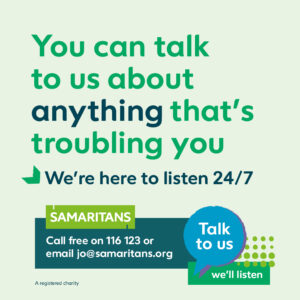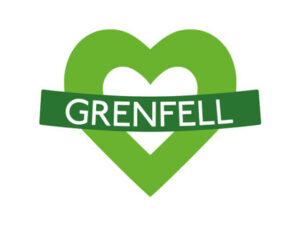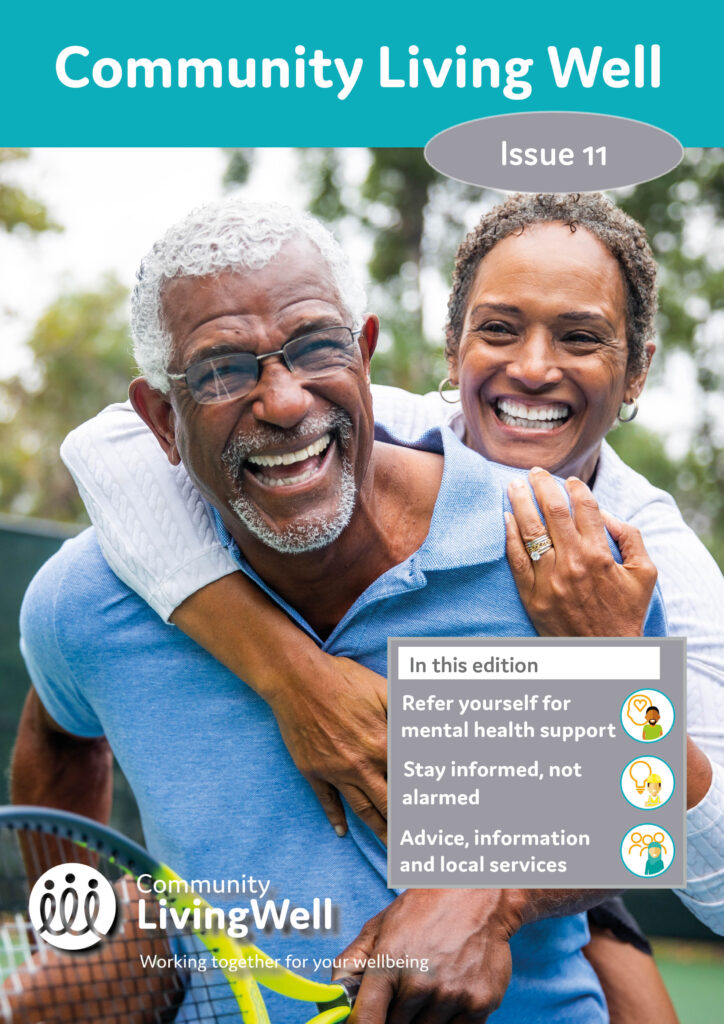Latest News
Managing anxiety and stress during this time
 There’s a lot going on in our world right now. If news and current events are causing you anxiety and stress, there are some things you can do to help manage these feelings.
There’s a lot going on in our world right now. If news and current events are causing you anxiety and stress, there are some things you can do to help manage these feelings.
STAY INFORMED BUT NOT ALARMED
You might like to keep up-to-date with news from around the world, however, tuning in to every single development can easily become overwhelming. To stay informed but not alarmed, try the following:
- Get your information from reliable news sources – don’t rely on opinions on social media where people are venting and voicing their concerns. This can increase your own distress.
- Focus on developments locally rather than globally. This helps you to be appropriately concerned rather than get caught up in anxiety.
- Limit the amount you read or watch – set yourself a time to catch up on the latest headlines. Lunchtime might be best – first thing in the morning may spoil your mood for the rest of the day, and at night may affect your sleep. Don’t read every article or listen to every bulletin, just find out the latest and then switch off.
DON’T FORGET TO BREATHE
Take things one moment at a time and remember to breathe. It may sound simple but when we experience anxiety and stress, our breathing gets faster and shallower. When you feel yourself getting worked up, breathe slowly and deeply into your belly to override your stress response so that you feel calmer.
Meditating before leaving the house can help you relax and find a sense of calm. There are lots of apps available to download that can help with mindfulness, meditation and relaxation.
GIVE YOURSELF A BREAK AND BE KIND
It’s important to be kind to yourself. Remind yourself that we’re currently living in extraordinary times and it’s completely understandable if you’re feeling overwhelmed by certain things.
Practising self-kindness and compassion is a great way to improve your emotional wellbeing.
Talk to other people
Many people are probably feeling the same way as you, so talk to a friend, family member or colleague about how you’re feeling. Sharing your experience can help reduce the worry.
NEED EXTRA SUPPORT?
We’re here to help. Our services can support you if you’re struggling with your mental health.
- Talking Therapies (IAPT) – Short-term support for when you experience difficult emotions, such as, low mood, worry and stress.
- Peer Support – Wellbeing workshops, one-to-one peer support, peer support groups, social activities and peer support training with other people who have had similar experiences to you.
- Employment – Advice and support to gain and retain paid employment, improve your employability skills and know your rights in the workplace.
- Navigators – Practical support with a range of issues including benefits, debt, housing options, access to health and social care services and support to access specialist advice and information.
- Self-Care – Support and activities that help you to take care of your own mental, emotional and physical wellbeing.
You can refer yourself to Community Living Well here, or speak to your GP.
If you need urgent help with a mental health crisis, talk to the Samaritans on 116 123.
Author: Stewart Gillespie
Category: Community Living Well
Posted on: 19th October 2022
Exciting Peer Support Activities

At Community Living Well, we have an exciting range of in-person and online social peer support activities. Great for meeting new people and doing some interesting and engaging things together at the same time.
During the spring/summer we have had trips to Kensington Palace, including a look at their ‘Life Through the Royal Lens’ photography exhibition, plus a couple of visits to the Queen’s Gallery for their ‘Japan: Courts & Culture’ exhibition, which included a look around at some stunning, priceless artefacts from Japan, as well as a chance to partake in a water colouring session to make our own very piece of art! We’ve also been to the Royal College of Music for a couple of brilliant live classical music performances. Coming up we will have visits to Kew Gardens as well as some other famous London landmarks.
We have a regular walking group that meets up most weeks for some fresh air, a chat, and a gentle stroll around one of the local parks. We also have a very relaxing social meetup at a great venue in Notting Hill, where we have a chance to come and chat with others whilst having some free tea, coffee and biscuits.
And for those that enjoy online sessions we have our regular weekly quiz group (it’s good fun and don’t worry about it being competitive!), a weekly arts and culture group that discusses paintings and photography together, as well as occasional other activities such as an opera singing workshop with Opera Holland Park.
For more information…
If you are interested in these peer support activities and you’d like to know more, or to refer yourself to the service, see Peer Support.
Author: Stewart Gillespie
Category: Community Living Well, Peer Support
Posted on: 11th October 2022
World Mental Health Day 2022
 Today (Monday 10 October 2022) is World Mental Health Day. World Mental Health Day is observed every year, with the overall objective of raising awareness and breaking down the stigma of mental health issues around the world.
Today (Monday 10 October 2022) is World Mental Health Day. World Mental Health Day is observed every year, with the overall objective of raising awareness and breaking down the stigma of mental health issues around the world.
The stigma and discrimination experienced by people who experience mental ill health not only affects that person’s physical and mental health, stigma also affects their educational opportunities, current and future earning and job prospects, and also affects their families and loved ones. (Source: World Federation for Mental Health [WFMH])
PRIORITISE YOUR MENTAL HEALTH
Your mental health should be your priority because it impacts our whole life. We want to raise as much awareness as possible on this World Mental Health Day, and to remind you that Community Living Well is here for you.
We offer the following services:
- Talking Therapies (IAPT) – Short-term support for when you experience difficult emotions, such as, low mood, worry, stress and anxiety.
- Peer Support – Wellbeing workshops, one-to-one peer support, peer support groups, social activities and peer support training with other people who have had similar experiences to you.
- Employment – Advice and support to gain and retain paid employment, improve your employability skills and know your rights in the workplace.
- Navigators – Practical support with a range of issues including benefits, debt, housing options, access to health and social care services and support to access specialist advice and information.
- Self-Care – Support and activities that help you to take care of your own mental, emotional and physical wellbeing.
You can refer yourself to the Community Living Well service here.
These local organisations also offer crucial support.
Author: Stewart Gillespie
Category: Community Living Well
Posted on: 10th October 2022
How to fit mental health breaks into your day

During our busy lives, we can easily forget to take care of our mental health, but making time for a mental health break doesn’t have to be difficult.
Most of us would love to be able to switch off for an hour during the day, but with work, studying, parenting, or all of the above, that is not possible.
There are some simple activities that you can fit easily into your daily routine that can support your mental wellbeing.
Mindful eating
Take a moment to be completely present when you sit down to eat your breakfast, lunch or dinner. Being mindful means being aware of the taste and smell of what you’re eating and taking time to enjoy the sensations. If you’re sitting in a park or by a window, take notice of your natural surroundings as you eat. Try not to let your mind wander – just stay in the moment.
Make time for exercise
Take a walk at lunch time, even if it’s just 5 or 10 minutes to walk around the block. If you work or live near a park, take a longer stroll and appreciate the green space.
Connect with loved ones
Connecting with people can help to improve your mood throughout the day. Send a message to friends, call a family member at lunchtime or after work.
You could even spend lunchtime with colleagues or classmates that you get on well with.
Take advantage of your commute
If you get the bus or train to work, school or college, take a few minutes to be mindful before you get lost in your phone or your book. Be aware of your surroundings, notice the view out of the window. You might try taking a few minutes to meditate by closing your eyes and saying some positive affirmations in your mind.
Write things down
We can become overwhelmed by thoughts. You might be thinking about what to have for dinner later, or worrying about your next meeting. Try writing these down or make a list of things to do – putting it down on paper can help to clear your mind.
Listen to music or a podcast
Hopefully you can find some time during the day to listen to a few of your favourite songs. It might be in the morning when you’re getting ready, on your commute or walk, or at lunchtime. If you have enough time, listen to a podcast you enjoy, or find a positive one like meditation or positive affirmations.
Set reminders
Set an alarm to go off a couple of times during the day to remind yourself to take a mental health break. Use this time to walk away from your desk, office or classroom for a few minutes, make a cup of tea or take a few deep breaths.
Limit your screen time
If you’re staring at a computer screen all day at work or school, make sure you take regular breaks away from the screen if you can. This will help to rest your eyes and your mind.
Put your phone down. It is so easy to get lost in social media or YouTube, and this can make us feel anxious or low. Log in for a few minutes, have a quick catch up, and then put your phone down.
If you need additional support…
Community Living Well can help to support your mental wellbeing. Our services can help you if you’re struggling with feelings of anxiety, stress or low mood. You don’t need to see your GP first – you can refer yourself quickly and easily.
National charity, Mind, has some mindfulness exercises and tips that you could try when you take a mental health break.
Author: Stewart Gillespie
Category: Community Living Well
Posted on: 22nd September 2022
World Suicide Prevention Day 2022
Saturday 10 September is World Suicide Prevention Day and the current theme is ‘Creating Hope Through Action’ – a reminder that there is an alternative to suicide and that our actions, no matter how big or small, may provide hope to those who are struggling.
The International Association for Suicide Prevention has produced this video “to inspire confidence and light in us all to act, through reaching in to a person who may be struggling, by encouraging understanding within ourselves and our communities and by sharing our experiences to impart a message of hope.”
Many of us are affected by suicide or suicidal feelings throughout our lives. Even though mental health awareness has increased in recent years, talking about suicide is still widely stigmatised. Too many of us suffer in silence.
We know that it can be scary talking to someone about their suicidal feelings, but it really can make a difference.
If you need to speak to someone urgently, you can contact the following:
- CNWL NHS Single Point of Access (SPA) on 0800 0234 650 (24/7)
- Samaritans on 116 123 (24hrs a day, 365 days a year)
If you are struggling with suicidal thoughts yourself, national charity, Mind, has some information you may find helpful, including how you can access treatment and support. And if you feel that your life is at risk, please seek urgent medical help now by calling 999 or going straight to A&E if you can. Mental health emergencies are serious. You’re not wasting anyone’s time.
Please take care of yourself.
If you need support with your mental health and mental wellbeing…
If you are struggling with constant feelings of anxiety, stress or low mood, our Talking Therapies service may be able to help. You can register for the service by completing this self-referral form.
Talking to people who have a shared experience of mental health and who understand what you’re going through can help you feel less isolated and boost your confidence. Find out more about our Peer Support service and how it can help you. You can also refer yourself to this service.
If a mental health problem is affecting your job or your ability to look for work, our Employment Support service can offer assistance. You can also refer yourself to this service.
There is also the Navigator service and Self-Care service. You can refer yourself to these as well.
Author: Stewart Gillespie
Category: Community Living Well
Posted on: 7th September 2022
Talking Therapies: Pierre’s story

“I hope by sharing my experience, other people will want to try.”
Pierre had been dealing with anxiety and depression for a while. He turned to Talking Therapies (IAPT) for support. We spoke to him to find out about his experience.
How did you come to hear about Talking Therapies?
I heard about it through my GP. I’ve been dealing with anxiety and depression for the past year. I’d been taking medication to help, but as I reached a certain point, my doctor recommended that I do therapy along with the medicine. He referred me to Community Living Well. They contacted me and explained how it would work, then we arranged my first session. It was very straightforward.
How were your sessions were run? What did they involve?
My sessions were arranged over the phone on a weekly basis. It has been amazingly useful. It’s incredible the things that I am discovering about myself through this, and about why I do the things I do, why I think the way I do, why I react the way I do. It’s mind blowing.
There was a diagnostic session, where the therapist assessed how much or how little I needed, and the type of intervention I needed.
I would say she was curious to know my circumstances, where I’m living, who with, what are my worries, and from that, she built up an understanding of what I’m going through. At first, I just expected that I would talk and talk, and then she would tell me a magic solution for everything.
But then she started to give words of encouragement, trying to acknowledge what she’s hearing. She was reassuring me, explaining it will take time. I was so deep down in a negative state of mind, but then I thought ‘I must trust the process’.
It started to feel like I was talking to a friend. The bond developed and I found it fascinating that I kept talking, and then I kept discovering things. When I got the most fundamental information about myself, it was when I was talking.
Were you given exercises or coping tools to practise at home?
Yes. I tend to have high levels of anxiety; I’m not living in the present, so to be present was the first thing. The therapist told me to walk around and pay attention to things that are happening, look at the buildings, look at the sky. Normally I would lock myself up with my headphones and music, then nothing else exists, but my head was like an engine, thinking thousands of things at a time and not being present.
They also taught me some meditation and mindfulness, and also some exercises in regard to self-image. To look at myself in the mirror and tell myself positive things about me. I used to reflect so many negative thoughts onto myself. I would worry about what my friends thought, but even as I’m talking about it now, I’m realising that that was me thinking about myself. The therapy has given me that awareness to recognise moments like that.
Other things included writing journals and physical activity, so to leave the house in the morning for a walk or run, get some fresh air and light.
It is a process, but I think I opened the gate to self-acceptance, to self-understanding, with an attempt to break this cycle. I’m actually amazed. I thought the therapy would be just like talking about what was wrong, but it was deeper than that. It gave a meaning to everything.
How have the sessions helped you?
When I look back now, I was doing things detrimental to my wellbeing. I’m amazed at the discoveries I’ve made – it’s like I’ve woken up.
Despite everything I’ve been through, I wouldn’t change it because the way I feel about myself today, and who I am, I wouldn’t change for anything. I’m more confident than I’ve ever been.
I had a job interview yesterday. In the past, I’ve always felt ‘less than’, but this time, I knew I am not.
I truly have a different view on everything. Therapy has definitely triggered something.
Would you recommend Talking Therapies?
Definitely – even if you don’t think you believe in it, give it a try. Do it with an open mind and willingness to know that things will be better. If you are willing to make the next step and you want to make a change, I would definitely recommend it. I think everyone would benefit, but especially if you are struggling, this will be a life-changing moment for you. It’s zero to 100, it’s to that level. I’m so grateful – so, so grateful.
I would really like to help; I feel like I want to give back now to help someone else.
REFER YOURSELF FOR TALKING THERAPY
Our Talking Therapies (IAPT) team can help if you are struggling with feelings of anxiety and depression, you’re feeling low in mood, or if you are having trouble sleeping. Find out more about the service and refer yourself.
Find out more about CNWL NHS Talking Therapies (IAPT) services
Author: Stewart Gillespie
Category: Community Living Well, Talking Therapies
Posted on: 30th August 2022
Out now! Community Living Well magazine Issue 11
We are pleased to share the 11th edition of Community Living Well magazine.
This issue includes informative stories and practical information and advice on a range of topics to help support your mental health and wellbeing, including:
- coping with loneliness
- employment and workplace support
- how to manage worries about money
- how to refer yourself for support
Read Community Living Well magazine Issue 11 (best for desktop viewing)
Read Community Living Well magazine Issue 11 (best for mobile device viewing)
To sign-up to receive the Community Living Well magazine direct to your inbox, complete this form.
Author: Stewart Gillespie
Category: Uncategorised
Posted on: 17th August 2022
How to be a good colleague
 Wellbeing at work: How to be a good colleague
Wellbeing at work: How to be a good colleague
Many of us have experienced changes to the way we work over the last two years. It’s important to maintain wellbeing at work as we spend so much time at our jobs and with our co-workers. Here are some tips on how you can be a good colleague…
Express your appreciation
When people feel unappreciated at work, they can become unmotivated and unwilling to make an effort. It can be very frustrating if you’re not being recognized for the hard work you are doing.
Make sure you thank your colleagues or team members for the work they have done, especially if it’s something that has helped you in your role. Either thank them face-to-face or write a thoughtful email.
Respond to emails or calls promptly
Try to reply to your colleagues as soon as you can. They may be relying on your response to move a piece of work forward or meet a deadline. Alternatively, if you don’t have time to respond properly at the time, just send a quick email to explain you’re held up at the moment and you’ll get back to them later – you could give a rough timeframe to help manage their expectations and so that they don’t chase you again.
Steer clear of gossip
It’s never nice to talk about someone behind their back. Office gossip can be risky and unprofessional. It’s best to keep all lines of communication open with your colleagues so that you can be transparent and honest, then there’s no room for speculation or rumour-spreading.
Be humble
You don’t have to sell yourself short to be humble. The ability to recognise your own limitations and shortcomings can make it easier to develop more meaningful relationships with your colleagues.
Avoid annoying office habits
If you share office space or meeting rooms, make sure you clean up after yourself and keep the space tidy. Be conscious of how loud you play your music or how frequently you take long calls. If you have an Zoom meeting or long phone call, try take it in another room so as not to disturb your co-workers. Be aware of things like time management and eating at your desk. Be considerate and respectful of each other.
Reach out to new teammates
It’s always nerve-wracking when starting a new job. Make your new colleagues feel welcome by offering to help, answering any questions they may have, ask them welcoming questions, and make an effort to make them feel at ease.
Be respectful of people’s time
We’re all busy and stressed. We’re all dealing with things we don’t want to deal with. And, we all wish there were more than 24 hours in a day.
You can take small steps towards making things more manageable by respecting your colleagues’ time. Make an effort to show up on time and come prepared. And if a meeting ends early, don’t try to fill the time – let people go!
Bring snacks
It’s always lovely when someone offers you a treat! Why not, every once in a while, make your colleagues smile and bring in a few snacks to enjoy – obviously, always be mindful of food allergies!
Be helpful
If you overhear a colleague struggling with an IT problem and you know how to solve it, step in and offer to help. It only takes a few minutes out of your day and will be very much appreciated. Or, maybe someone is looking for a contractor and you know someone perfect for the job, introduce them!
Support in absence
If a co-worker is off sick, offer to pick up some of their tasks while they’re away. This will help reduce their worry and stress, and they’ll likely return the favour if you’re ever absent.
Listen
Sometimes the best thing we can do to support someone is to listen. We all need to vent now and then, so if a colleague is frustrated and needs to get something off their chest, lend your ear and let them talk. By listening, it will help you to understand what they’re going through and maybe help to find a solution.
For more information…
Find more tips and advice on HubSpot.
You can find further information and resources to support wellbeing in the workplace on the Mind website.
If you need support with your mental health, you can refer yourself to Community Living Well by completing this online form.
Author: Stewart Gillespie
Category: Community Living Well, Employment
Posted on: 13th July 2022
Samaritans Talk to Us campaign
 Throughout July, Samaritans will be running its annual awareness-raising campaign, Talk to Us. The campaign aims to let people know that Samaritans volunteers are here 24/7 for anyone who is struggling to cope.
Throughout July, Samaritans will be running its annual awareness-raising campaign, Talk to Us. The campaign aims to let people know that Samaritans volunteers are here 24/7 for anyone who is struggling to cope.
In 2021 Samaritans volunteers spent over one million hours responding to calls for help.
To show our support, we will be raising awareness on social media throughout July, as well as marking Samaritans Awareness Day on 24 July.
If you’d like to get involved, you can help raise awareness this month by sharing Samaritans’ messaging on your own social media pages using #TalkToUs and #SamaritansAwarenessDay.
When life is difficult, Samaritans are here – day or night, 365 days a year. You can call them for free on 116 123, email them at [email protected], or visit www.samaritans.org to find your nearest branch.
Author: Stewart Gillespie
Category: Community Living Well
Posted on: 5th July 2022
Commemorating the Grenfell 5th Anniversary
 Tuesday 14 June marks the fifth anniversary of the Grenfell Tower disaster. Our thoughts are with the individuals and communities affected by this tragedy, today and always.
Tuesday 14 June marks the fifth anniversary of the Grenfell Tower disaster. Our thoughts are with the individuals and communities affected by this tragedy, today and always.
If you need support during this time…
The Grenfell Health and Wellbeing Service is running online sessions and continue to offer their usual support services. You can find more information on their website.
The Grenfell Memorial Commission is working to ensure that the bereaved families, survivors and North Kensington residents lead decision-making on the long-term future of the Grenfell Tower site. You can find out more about their work and how to get involved on their website.
Grenfell United is holding a Memorial Service at Grenfell Tower on Tuesday 14 June at 4pm. Find out more here.
NHS Talking Therapies (IAPT) can help if you’re struggling with grief, bereavement, anxiety or low mood. You can refer yourself here.
Peer Support lets you connect with others with similar experiences of mental health, and is a way to get and give support. You can refer yourself here.
Author: Stewart Gillespie
Category: Community Living Well
Posted on: 9th June 2022




